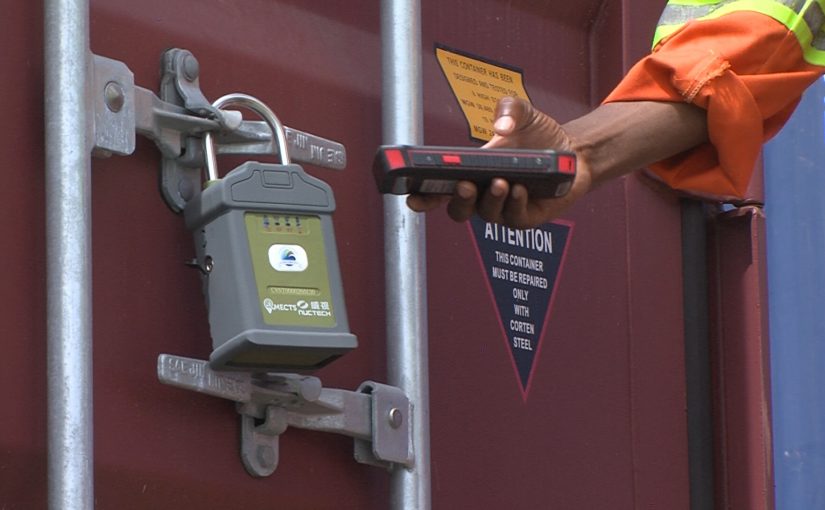Mozambique: Civil servants mustn't be experts in complicating things - President during visit to ...
Mozambique: Electronic sealing in Port of Beira back on track – O País

Photo: O País
The electronic sealing of cargo containers in transit to hinterland countries from the port of Beira in Sofala is again proceeding normally, after a hold-up related to the supply of seals.
Sérgio Zandamela, executive director of Mozambique Electronic Cargo Tracking Services (MECTS), the company responsible for the electronic sealing system, explained that several factors had contributed to the shortage of stamps, among them the reduction of operations in Porto da Beira over the festive season and Storm Chalane.
After these two episodes, the volume of cargo in containers doubled. “The replacement process [of seals] in Maputo” did not happen “in time to avoid the interruption of activities. But replacement has now been carried out and, at this moment, installed capacity is for 260 trucks per day, against around 200 daily movements, and not the 700 reported, taking into account that not all cargoes are in transit,” Zandamela explained.
The hiatus in the supply of electronic stamps created congestion inside and outside the port for three days. But, since last Sunday, the circulation of people and goods was proceeding normally, truck driver Alberto Matiquire told ‘O País’.
“It’s been wonderful to handle cargo in the port of Beira since Sunday. Especially since, after that congestion created by the lack of stamps, Customs did not allow any vehicles to move without stamps,” said Matiquire.
Cornelder de Moçambique, the company managing the Port of Beira, however wants improved coordination in the implementation of the system.
“Improving dialogue” will allow “the successful implementation of the system. Once again, we understand the benefits and merits of this system; we just have to do it in the best possible way,” director of operations at Cornelder de Moçambique Anselmo Guila said.
MECTS has expressed interest in maintaining a permanent dialogue with Cornelder de Moçambique and all interested parties in the search for the best way for the electronic sealing system to proceed efficiently and benefit the country.
Electronic sealing is the placement of an electronic device in vehicles in transit in the national territory heading to neighbouring countries, which can be tracked in order to prevent tax avoidance, a problem that affects the economy to the extent that “about 10 percent of gross domestic product is lost to smuggling”, Zandamela explains. “We have to channel these resources to our economy.”
The pilot phase of the electronic sealing process started in the middle of last month and not last Monday, contrary to what previous editions of ‘O Pais’ reported.
By Francisco Raiva













Leave a Reply
Be the First to Comment!
You must be logged in to post a comment.
You must be logged in to post a comment.